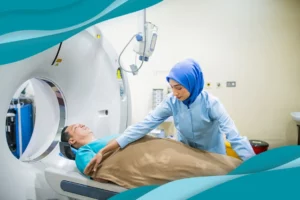
How Long Does It Take to Become an MRI Tech
Introduction
In the ever-evolving landscape of medical technology, becoming an MRI technologist can be a rewarding career choice. MRI techs play a crucial role in diagnosing illnesses and aiding medical professionals in making informed decisions. However, the journey to becoming an MRI tech involves a series of steps and educational milestones. In this article, we’ll explore the path one must take to become an MRI technologist, the time it typically takes, and the various factors that can influence the timeline.

Understanding the Role of an MRI Tech
Before delving into the educational journey, let’s understand the responsibilities of an MRI technologist. These professionals operate MRI machines to capture detailed images of patients’ internal structures. Their expertise is vital in helping doctors identify and diagnose a wide range of medical conditions, from bone injuries to neurological disorders.
Educational Pathways
High School Preparation
The journey to becoming an MRI tech often begins in high school. Aspiring techs should focus on a strong foundation in science and math, which are fundamental for success in this field.
Radiologic Technologist Program
Most MRI technologists start by pursuing a Radiologic Technologist (RT) program. These programs typically last around 2 years and provide a solid understanding of medical imaging techniques, patient care, and safety protocols.
MRI Specialization
After completing an RT program, aspiring technologists can choose to specialize in MRI. This involves further education and training specific to magnetic resonance imaging. Specialized MRI programs can take an additional 1 to 2 years to complete.
Clinical Experience
Gaining practical experience is a crucial component of becoming an MRI tech. Many programs require students to complete a certain number of clinical hours to ensure they are competent and confident in operating MRI machines and interacting with patients.
Licensure and Certification
To work as an MRI technologist, individuals need to obtain the appropriate licensure and certification. Requirements vary by state and country, but it often involves passing a certification exam conducted by a recognized governing body.
Factors Influencing the MRI Tech Career Timeline
The time it takes to become an MRI tech can vary based on several factors:
Education Choices: Opting for accelerated programs or part-time study can impact the overall duration of the journey.
Clinical Hours: Programs with extensive clinical requirements may lengthen the time needed to complete training.
Certification Process: The time taken to prepare for and pass the certification exam can affect the timeline.
Prior Education: Individuals with a background in radiology or related fields may have a head start in the process.
FAQs How Long Does It Take to Become an MRI Tech
1. How long does it take to become an MRI tech?
The timeline can range from 2 to 4 years, depending on the educational path, specialization, and certification process.
2. Can I become an MRI tech directly after high school?
While it’s possible, most MRI techs follow the RT program path after high school.
3. Are online MRI tech programs a viable option?
Online programs can be convenient, but ensure they are accredited and provide sufficient hands-on experience.
4. Is clinical experience mandatory?
Yes, clinical experience is vital for developing practical skills and confidence in the field.
5. What is the job outlook for MRI technologists?
The job outlook is promising, with a projected growth in demand for qualified MRI techs in the coming years.
Conclusion
Becoming an MRI technologist is a journey that requires dedication, education, and hands-on experience. The path involves completing a Radiologic Technologist program, specializing in MRI, gaining clinical experience, and obtaining the necessary licensure. The timeline varies based on individual choices and circumstances, but with the increasing demand for medical imaging, the effort invested in becoming an MRI tech is likely to lead to a fulfilling and stable career.


